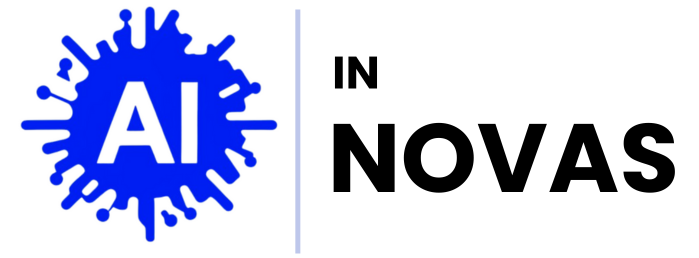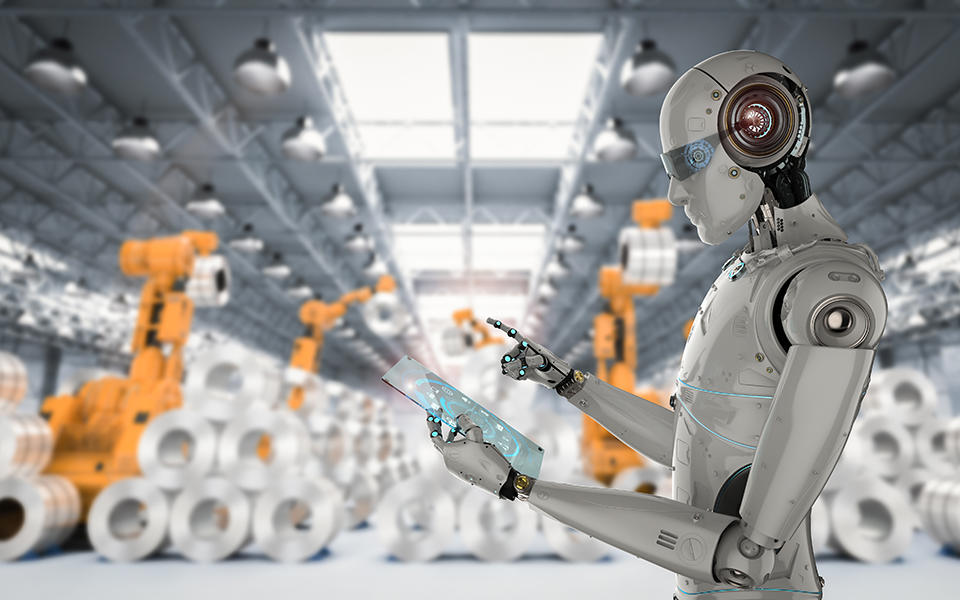In the era of digital transformation, Artificial Intelligence (AI) has emerged as a pivotal force, reshaping industries and redefining the boundaries of what’s possible in business. This comprehensive guide delves into how AI solutions are transforming various sectors, offering unprecedented opportunities for innovation, efficiency, and growth.
showcases Industry AI solutions
AI in Healthcare: Pioneering Personalized Medicine and Improved Patient Care
The healthcare industry is witnessing a paradigm shift with the integration of AI technologies. From diagnosis to treatment, AI is enhancing every aspect of patient care.
Diagnostic Imaging and Analysis
AI-powered systems are revolutionizing medical imaging, offering faster and more accurate diagnoses. For instance, IBM Watson Health has developed AI tools that can analyze medical images to detect diseases like cancer at early stages, significantly improving treatment outcomes.
Drug Discovery and Development
AI is accelerating the drug discovery process, reducing time and costs. Companies like Atomwise use AI to predict the effectiveness of new drug compounds, potentially saving years in the development cycle.
Personalized Treatment Plans
AI algorithms analyze patient data to create tailored treatment plans. Tempus uses AI to analyze genetic data and medical histories to recommend personalized cancer treatments.
Robotic Surgery
AI-enhanced robotic systems like the da Vinci Surgical System are enabling minimally invasive procedures with greater precision.
AI in Finance: Enhancing Security, Efficiency, and Customer Experience
The financial sector is leveraging AI to improve risk assessment, detect fraud, and provide personalized services.
Fraud Detection and Prevention
AI systems analyze transaction patterns to identify and prevent fraudulent activities in real-time. Feedzai uses machine learning to detect financial crime across various banking channels.
Algorithmic Trading
AI-powered trading systems can analyze market data and execute trades at optimal times. Platforms like Quantopian allow quants to develop, test, and use AI-driven trading algorithms.
Personalized Banking
AI chatbots and virtual assistants are providing personalized financial advice and support. Bank of America’s Erica is an AI-powered virtual financial assistant that helps customers with various banking tasks.
Risk Assessment
AI models assess credit risk more accurately by analyzing a broader range of data points. Upstart uses AI to provide fairer credit decisions and increase access to affordable credit.
AI in Manufacturing: Ushering in the Era of Smart Factories
AI is transforming manufacturing processes, enabling predictive maintenance, quality control, and supply chain optimization.
Predictive Maintenance
AI systems predict equipment failures before they occur, reducing downtime and maintenance costs. Siemens MindSphere uses IoT and AI to optimize asset performance and enable predictive maintenance.
Quality Control
Computer vision and machine learning algorithms inspect products for defects with greater accuracy than human inspectors. Landing AI provides visual inspection AI tools for manufacturing quality control.
Supply Chain Optimization
AI optimizes inventory management and logistics. Blue Yonder offers AI-powered supply chain management solutions that predict demand and optimize inventory levels.
Collaborative Robots (Cobots)
AI-powered cobots work alongside humans, enhancing productivity and safety. Universal Robots produces cobots that can be easily programmed to perform various tasks.
AI in Retail: Personalizing the Shopping Experience
Retailers are using AI to understand customer preferences, optimize pricing, and manage inventory more effectively.
Personalized Recommendations
AI analyzes customer data to provide tailored product recommendations. Amazon’s recommendation engine is a prime example, driving up to 35% of the company’s revenue.
Dynamic Pricing
AI algorithms adjust prices in real-time based on demand, competition, and other factors. Prisync offers AI-powered dynamic pricing solutions for e-commerce businesses.
Inventory Management
AI predicts demand and optimizes stock levels. Blue Yonder provides AI-driven demand forecasting and inventory optimization for retailers.
Virtual Try-On Technology
AI-powered augmented reality allows customers to virtually try on products. Warby Parker’s Virtual Try-On app uses face mapping to let customers see how glasses look on their face.
AI in Agriculture: Cultivating the Future of Farming
AI is helping farmers increase yields, reduce resource usage, and adapt to changing climate conditions.
Precision Farming
AI-powered systems optimize planting, watering, and harvesting. John Deere uses AI and machine learning in its precision agriculture tools.
Crop and Soil Monitoring
AI analyzes satellite imagery and sensor data to monitor crop health and soil conditions. The Climate Corporation (owned by Bayer) provides AI-driven insights to help farmers make data-driven decisions.
Autonomous Farming Equipment
Self-driving tractors and harvesters increase efficiency and reduce labor costs. CNH Industrial has developed autonomous tractors that can operate 24/7.
Livestock Management
AI monitors animal health and optimizes feeding. Cainthus uses computer vision to monitor dairy cows and optimize their care.
AI in Education: Personalizing Learning and Enhancing Educational Outcomes
AI is transforming education by providing personalized learning experiences and assisting educators.
Adaptive Learning Platforms
AI tailors educational content to individual student needs. Knewton provides adaptive learning technology that adjusts to each student’s performance.
Automated Grading
AI assists in grading assignments, particularly for multiple-choice and short-answer questions. Gradescope uses AI to help instructors grade more efficiently and consistently.
Intelligent Tutoring Systems
AI-powered tutors provide personalized assistance to students. Carnegie Learning offers AI-based math learning software that adapts to each student’s needs.
Educational Analytics
AI analyzes student data to identify areas for improvement and predict outcomes. BrightBytes uses data analytics and machine learning to help educational institutions improve student outcomes.
AI in Energy: Optimizing Production and Consumption
The energy sector is leveraging AI to improve efficiency, reduce costs, and transition to renewable sources.
Smart Grid Management
AI optimizes electricity distribution and manages demand. Grid4C provides AI-powered solutions for smart grid management and energy forecasting.
Predictive Maintenance for Energy Infrastructure
AI predicts equipment failures in power plants and distribution networks. GE’s Digital Power Plant uses AI to optimize power plant operations and maintenance.
Energy Consumption Optimization
AI helps businesses and homes reduce energy consumption. Nest, now part of Google, offers smart thermostats that learn from user behavior to optimize energy use.
Renewable Energy Forecasting
AI improves the accuracy of renewable energy production forecasts. IBM’s Hybrid Renewable Energy Forecasting (HyRef) technology uses AI to forecast renewable energy output.
Conclusion: The Future of AI in Industry
As we’ve explored, AI is not just transforming individual sectors but is reshaping the entire industrial landscape. From healthcare to energy, retail to agriculture, AI solutions are driving efficiency, innovation, and growth across the board.
The future promises even more advanced AI applications, with potential developments including:
- More sophisticated natural language processing, enabling more human-like interactions with AI systems.
- Advanced predictive modeling, allows businesses to anticipate market changes and customer needs with greater accuracy.
- Increased integration of AI with other emerging technologies like blockchain and quantum computing.
- Enhanced explainable AI (XAI), making AI decision-making processes more transparent and trustworthy.
- Greater focus on ethical AI development, ensuring that AI systems are fair, unbiased, and aligned with human values.
As AI continues to evolve, its impact on industries will only grow. Businesses that effectively leverage AI technologies will gain significant competitive advantages, while those that lag may struggle to keep up.
For a broader perspective on the future of AI and its impact on various industries, the World Economic Forum’s insights on AI and the Fourth Industrial Revolution offer valuable insights.
The key to success in this AI-driven future lies in understanding the potential of AI, strategically implementing it to address specific business challenges, and continuously adapting to the rapidly evolving technological landscape. As we move forward, the synergy between human expertise and AI capabilities will undoubtedly unlock new realms of possibility across all sectors.


Pingback: AI-driven Lighting System 2024 - AI in Novas
Pingback: Top Smart Scales for Effective Body Tracking in 2024 - AI in Novas
Pingback: Unlocking the Future: How AI Tech is Revolutionizing Our World - AI in Novas